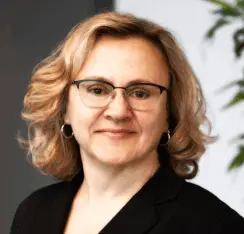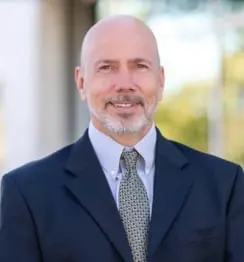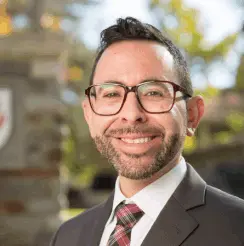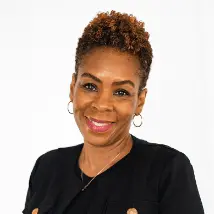 | 1.5 LU |
 | 1.5 LU |
Recent planning models of school design have been challenged by the destabilizing effect of the COVID 19 pandemic. Following the outbreak and spread of COVID -19, schools everywhere closed for significant periods of time, and although most districts were able to develop remote learning practices, none were able to do so quickly. Scholars provided projections of the likely impacts on educational outcomes, but none anticipated the dire impacts on mental health and the extent of learning loss across all grades. With feelings of isolation and school refusal now at an all-time high, districts are compelled to find multiple and varied solutions to foster students’ mental health and wellness. The design of schools is considered by psychologists to be an effective educational parameter in students’ learning ability. School facilities are a dynamic factor that can significantly influence the quality of educational performance, and schools are among the most influential environments in human personality development. Place attachment is an important concept in the development of self, for one’s place in the universe as well as spatially, via the natural and cultural environment, family and social activities, and history and traditions of a community.
Learning environments play a profound role in engaging students through connection to place. The correlation between the physical and psychosocial environment is clear, given the constructive shared interactions, and feelings of inclusion and safety that can be derived through positive attachment to school environments. Evidence suggests that exposure to nature in its broadest sense (i.e. community, home, and educational environments) may be particularly beneficial in improving children’s social, emotional, and cognitive development. Systematic reviews exploring the effect of nature on children and adolescents’ health suggested improvements in emotional wellbeing, overall mental health, resilience, self-esteem, and reduced stress . Nature based early childhood education (ECE) settings provide additional interactional opportunities that are more dynamic and changeable in comparison to traditional ECE where outdoor learning is less available.
Panelists will share their own research and experience-based evidence that demonstrate the connection to educational place as a driver for development of self in early childhood, through integration into environmental stewardship and community leadership in graduate studies. Through case studies of two projects in design, an early childhood education center and a university transdisciplinary education building, this panel will share discoveries and engage the audience to continue this important line of inquiry. Michael Gruneberg explains in his book “Theoretical Aspects of Memory” that memory is context-based; we quickly lose knowledge if it is not connected to anything or any place. A transdisciplinary approach to learning provides contextual framework in which multiple learning modalities may thrive, integrating the natural, social and health sciences in a humanities context and embracing students’ interests in the world around them to drive their engagement. As pedagogical approaches to teaching and learning continue to transform, so must psychosocial and physical learning environments, embedding a sense of place and feeling of inclusion for all students throughout their learning journeys.
Learning Objectives:

Leona is an ALEP, Licensed Architect and LEED AP with a background of over twenty years in education architecture. She has also approached the design of learning environments from an owner’s perspective as Director of Design for the Public Building Commission of Chicago, in educational specifications with Los Angeles Unified School District, and as an educator, with adjunct teaching positions at the Harrington Institute and Columbia College in Chicago, and the State University of NY College at Buffalo. Leona is currently a principal with PBK architects in Sacramento, California. She is invested in ensuring the learning environments for students in the Sacramento region are places they love.

Jeff has over 26 years of experience in Pre-K-12 and Higher Education design. This encompasses master planning, programming, architectural design, engineering integration, state regulations, sustainability, project management, construction administration and cost estimating. It’s about engaging design from start to finish. His primary focus as a Senior Designer starts with capturing the school’s mission and vision through client engagement; creating innovative and dynamic environments through a next generation design approach; and following the design through its development into a built project. This includes continually matching the budget with the project goals. Jeff also has served as an adjunct professor in architecture at California Baptist University. He continues to speak/present at CASH conferences (Coalition for Adequate School Housing) on school design. Jeff is a member of AIA (board), USGBC, Association for Learning Environments and Leadership in Energy and Environmental Design. Jeff earned his Bachelor of Science, Architectural Studies at the University of Illinois, and Associate of Engineering at the University of Evansville.

Andrew has taught neuroscience, physiology, histology, and medical ethics across a range of professional tracks, including integrative health and osteopathic medicine. He received research grants from the National Institutes of Health and Arnold P. Gold Foundation and served on the American Association of Medical Colleges Advisory Committee on Sexual Orientation, Gender Identity, and Sex Development, where he worked to promote inclusion of gender and sexual minority health care needs into medical curricula.

As a classroom teacher for fifteen years, Melvetta developed curriculums with staff, and implemented improving student success plans. She held a variety of leadership roles; interim principal, principal designee, beginning teacher support provider, and master teacher. Melvetta later transitioned into Program Manager for AVID (Advancement Via Individual Determination). She coached 50+ school districts and prepared students for college and career readiness. She’s focused on effective teaching practices, supporting leadership, and raising achievement for all students.
This track focuses on Resiliency and addresses how learning environments support the development of students and communities that have the strength and flexibility to withstand adversity and adapt to change. The COVID-19 pandemic demonstrated the essential role that schools have in stabilizing communities during a time of crisis. How do schools support the development of strong community culture among teachers and students? How do schools foster physical and mental health and wellness to ensure all are ready and supported to learn? How do we create learning environments that are strong in intent yet adaptable to change? How do we learn from what does not work and further, learn to take risks daily to expand our comfort zone? What can we learn from research and our responses to past events to inform how to build toward a resilient future where we can withstand what crises and challenges the future brings? Topic areas, seen through the lenses of both Art and Science, include sustainability, physical and mental health, community, school climate and culture, safety, and security.
Primary Core Competency
Educational Visioning: Exhibits an understanding of best and next practices related to educational leadership, programming, teaching, learning, planning and facility design. Establishes credibility with educators, community members and design professionals while conceiving and leading a community-based visioning process. Demonstrates the ability to articulate the impact of learning environments on teaching and learning and uses that ability to facilitate a dialogue that uncovers the unique needs and long-range goals of an educational institution and its stakeholders – translating that into an actionable written/graphic program of requirements for the design practitioner.